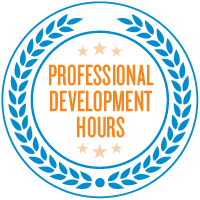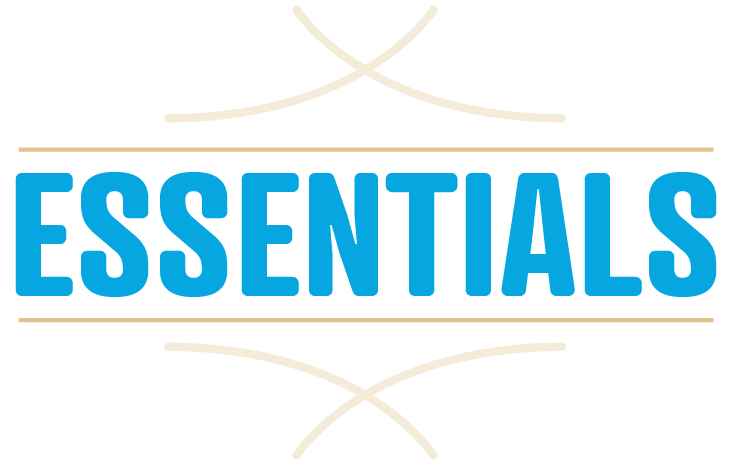Essentials of Effective Instruction is designed to provide engineering and STEM educators with the knowledge and tools needed to apply evidence-based instructional strategies in their classrooms that foster enhanced student learning and success.

Type: Instructor-Led Course
Delivery Method: Face-to-Face & Virtual
Level: Foundational
Duration: 8 hours
Dates
No upcoming dates at this time.
All sessions presented virtually via Zoom

Overview
Throughout Essentials of Effective Instruction, participants will gain foundational knowledge and learn best practices related to effective instruction and learning. By the end of this program, participants will have the knowledge and tools to apply instructional strategies in their classrooms that foster enhanced student learning and success.
How You Will Benefit
1. You will develop key course materials including a syllabus, classroom policies, and course learning objectives.
2. You will learn evidence-based principles and strategies to enhance student learning.
3. You will gain access to instructional techniques and tools that you can put to immediate use in your engineering classroom.
4. You will engage with a network of like-minded professionals for input, guidance, and feedback.
Intended Audience
This program is intended for the following groups:
• Engineering and STEM educators in higher education
• Faculty or graduate students who have (1) already taught a course, (2) are preparing to teach a course for the first time, or (3) are currently pursuing a faculty career
• Experienced educators in higher education who would like a refresher on best practices and new strategies for instruction and learning
Learning Outcomes
By the end of this program, you will be able to:
1. Prepare key course materials that establish student expectations and lay the foundation for effective instruction, including a meaningful syllabus with measurable and manageable learning objectives
2. Recognize key principles behind learning and memory and their implications and applications in engineering classrooms
3. Implement effective instructional practices for various delivery modalities using active learning and collaborative learning strategies
4. Develop effective assessment and evaluation instruments and grading policies
Session I: Setting the Stage for Effective Instruction
• Systematic Approach to Course Design
• Learning Objectives
• Establishing Expectations for Your Classroom
• Office Hours
• Inclusive Classroom Environments
Session II: Effective Learning—Principles and Classroom Applications
• Principles of the Learning Process
• The Importance of Memory
• Common Thinking and Learning Behaviors
• Effective Learning and Studying Strategies
• Impacting Student Persistence and Retention
• How to Teach for Better Learning
Session III: Effective Instruction—Strategies in Action
• Effective Instructional Strategies
• Learning Models
• Active Learning
• Facilitating Collaborative Learning and Teamwork
Session IV: Putting it All Together—Assessment and Evaluation
• Assessment within the Course Design Process
• Assessment vs. Evaluation
• Student Evaluation through Grading
• Common Evaluation Methods and Tools
• Course Assessment
• The DFW Rate and Assessing Overall Course Success
• An Overview of Accreditation
• Introduction to ABET
• Continuing the Conversation: ASEE
 Kaitlin Mallouk, Ph.D.
Kaitlin Mallouk, Ph.D.
Kaitlin Mallouk, PhD is an Assistant Professor, with tenure, in the Experiential Engineering Education department at Rowan University, where she teaches multi-disciplinary courses in the first and second years. Her research interests include pedagogical innovation adoption, the application of social network analysis to engineering education, and broadening participation in STEM. Kaitlin has a BS in Chemical Engineering from Cornell University and an MS and PhD in Environmental Engineering from the University of Illinois at Urbana-Champaign. She is a proud and active member of ASEE and is currently serving as the Past-Chair of the First-Year Programs Division. In 2022 she was awarded the ASEE MidAtlantic Distinguished Teaching Award for her dedication to students within and outside of the classroom.
Requirements and Resources
Pre-Work: You will have the opportunity to work on your own real-world course throughout the program. To prepare for the program, we ask that you gather or prepare materials from a course that you have (1) previously taught or (2) are planning to teach in the future.
Inter-session Work: You will complete homework assignments related to the program’s learning outcomes.
Supplemental Resources: You will be provided with (1) a participant guide, (2) presentation slides, and (3) workshop recordings.
Attendance and Completion
Full and active participation will enhance the learning experience for all participants. At the end of the program, you will receive a certificate of completion via email. Professional development hours (PDH) will be provided upon request.
Terms and Policies
• Cancellation Policy
• Recording and Privacy Policy
If you have questions, please contact learning@asee.org.

